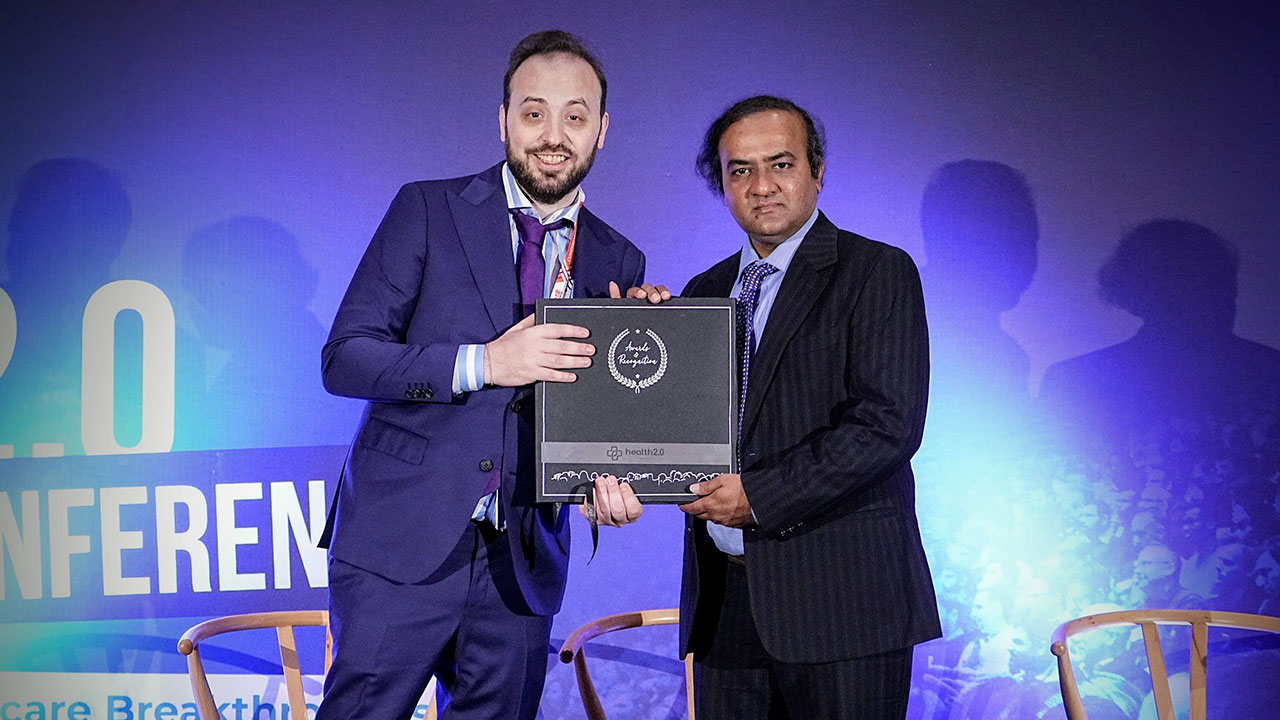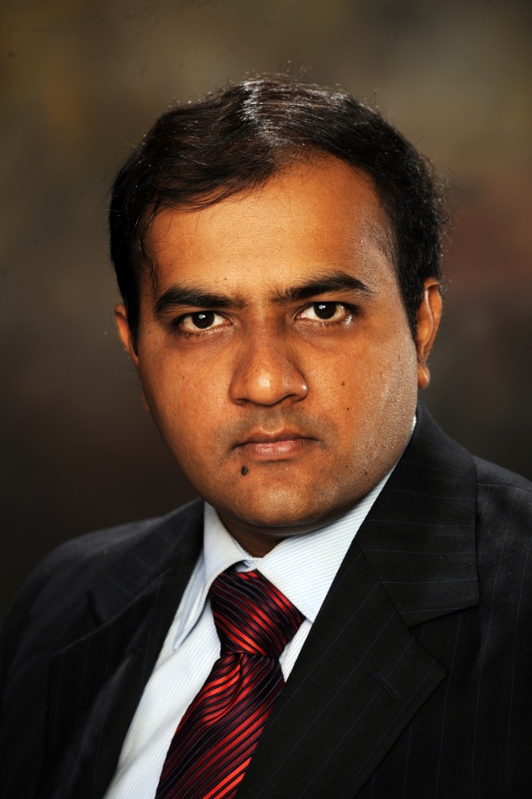Professor in electrical and computer engineering presented with Outstanding Leadership Award at Health 2.0 Conference
Published: May 15, 2024 9:40 AM
By Joe McAdory
Gopikrishna Deshpande, professor in the Department of Electrical and Computer Engineering (ECE), was presented with the Outstanding Leadership Award for extraordinary achievements in healthcare and wellness at the Health 2.0 Conference March 18-20 in Las Vegas.
Deshpande, among the leading researchers inside the Auburn University Neuroimaging Center, has published more than 100 articles on neuroimaging and brain connectivity, received significant research funding and has been featured in international media. His global collaborations extend across 18 countries, reflecting his influence in the field.
“As academicians, it is more common to be recognized by fellow academicians and scientific societies,” Deshpande said. “I have had such recognitions in the past. However, this award is given to leaders from outside academia as well, including people in the healthcare industry and those involved in outreach related to healthcare. Therefore, I find this award to be special because the members of the selection committee found my work to be of larger impact in the society beyond my narrow scientific discipline.
“Many people work hard, but only a few succeed. Therefore, I would like to attribute my success to the support provided by my colleagues at the neuroimaging center, ECE department and the College of Engineering. Without my family supporting me, it would have been impossible to put in the additional work. Therefore, I owe a large part of my success to my support systems.”
Deshpande’s research interests include signal and image processing, functional magnetic resonance imaging, multi-modal imaging and data fusion, network modeling of brain function, real-time brain state classification using machine learning, social and affective neuroscience, consciousness, clinical populations including autism, Alzheimer’s, developmental pyschopathologies, PTSD, and neuroeconomics and neuromarketing.
Deshpande, who has been on faculty at Auburn University since 2010, wasn’t always a research scientist exploring the inner workings of the brain and how it connects to other functions or relates to specific abnormalities. He began his career as a software engineer before shifting interests into biomedical applications of electrical engineering.
“It is interesting that I did not start off earlier in my education in this field (neuroimaging),” he said. “I am an electrical engineer by training and was initially interested in applying signal processing and data analytics to multimedia. While the code I wrote did improve someone’s entertainment experience a little bit, I did not find it satisfying enough. That’s when I was attracted towards biomedical applications of my skillset and found neuroimaging to be interesting — understanding how our brains work was touted to be the final frontier of human exploration of nature. In addition to that curiosity, there was a real opportunity to improve people’s lives in terms of their health.”
Most recently, Deshpande is exploring how artificial intelligence can be used to predict brain disorders and human/animal behavior using information from brain networks obtained from MRI. He envisions a future in which physicians acquire brain MRI data from a person and upload that into a chat-GPT style virtual assistant to derive personalized prescriptions for diagnosis, prognosis and treatment of mental health disorders based on what the AI model has learned from thousands of such subjects. Such a capability will powerfully complement how healthcare is practiced in the clinic.
Media Contact: , jem0040@auburn.edu, 334.844.3447
Gopikrishna Deshpande, right, professor in the Department of Electrical and Computer Engineering, accepts the Outstanding Leadership Award from Vincent W. Allen, founder and managing director of VAAV Industries.


